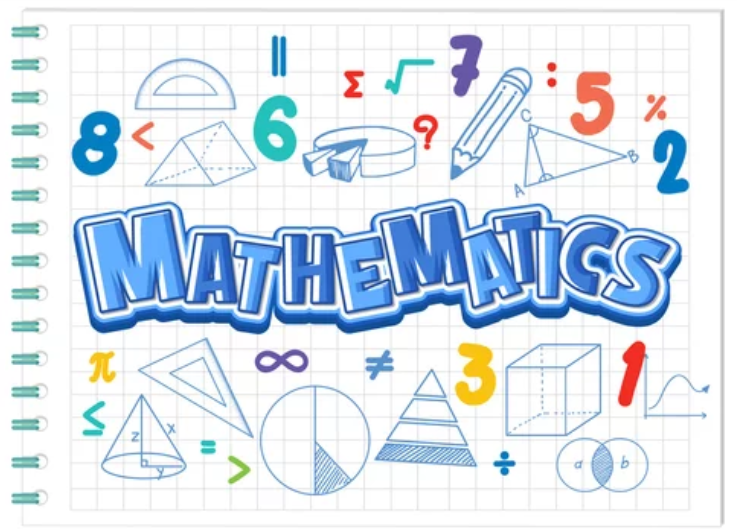Mathematics is a foundational subject that shapes how students think, solve problems, and understand the world around them. For elementary students, developing strong math skills early on is crucial for long-term academic success. But what exactly should students be able to do before they move on to middle school?
In this blog post, we explore 10 essential math skills every elementary student should master. These skills not only build confidence in the classroom but also prepare children for more complex mathematical thinking in later years.
Check out our Free Math Worksheet Generators
1. Number Sense and Counting
Understanding numbers and how they work is the first step in any math journey. Number sense includes recognizing numbers, counting forward and backward, skip counting, and comparing numbers.
Why it’s important:
Number sense lays the groundwork for addition, subtraction, and place value understanding.
Practice tip:
Use number lines, counting games, and daily practice with math worksheets to reinforce these concepts.
2. Basic Addition and Subtraction
Mastery of addition and subtraction facts up to 20 is essential. Students should also understand strategies like counting on, making ten, and using doubles.
Why it’s important:
These operations are fundamental in solving real-world problems and form the basis for future arithmetic.
Practice tip:
Printable timed drills and story problems help students practice fluency and build speed.
3. Place Value Understanding
Place value teaches students that digits have different values depending on their position. This includes understanding ones, tens, hundreds, and beyond.
Why it’s important:
Place value helps students read large numbers, compare quantities, and perform multi-digit operations.
Practice tip:
Use base-ten blocks and place value charts in interactive worksheets to visualize number positions.
4. Understanding of Patterns
Recognizing and predicting patterns—both numerical and visual—is a critical thinking skill. It includes even and odd numbers, skip counting, and repeating designs.
Why it’s important:
Pattern recognition is foundational for algebra and problem-solving skills.
Practice tip:
Incorporate pattern activities using shapes, colors, and number sequences in your daily routine.
5. Basic Multiplication and Division
By the end of elementary school, students should understand multiplication and division concepts and be able to recall facts up to 12.
Why it’s important:
These skills are essential for more advanced math, including fractions, ratios, and algebra.
Practice tip:
Use printable multiplication tables and flashcards, and apply concepts to real-life scenarios (e.g., grouping objects).
6. Fractions and Decimals
Students should grasp simple fractions, including halves, thirds, and quarters, and begin to understand decimals by grade 5.
Why it’s important:
Fractions and decimals are common in everyday life—from measuring ingredients to managing money.
Practice tip:
Interactive worksheets that include visual aids like pie charts help children understand parts of a whole.
Try out our Free Addition Worksheets
7. Measurement and Units
Children need to measure length, weight, capacity, and time using appropriate tools and units (both standard and metric).
Why it’s important:
Measurement is used in science, cooking, construction, and virtually every daily activity.
Practice tip:
Hands-on practice with rulers, measuring cups, and clocks makes abstract units more tangible.
8. Geometry Basics
Students should be familiar with shapes, their properties (like sides and angles), symmetry, and spatial reasoning.
Why it’s important:
Geometry enhances logical thinking and supports understanding of space and design.
Practice tip:
Use cut-out shapes, puzzles, and drawing tasks to make geometry visual and interactive.
9. Data Collection and Interpretation
Creating and interpreting charts, graphs, and tables helps students analyze information logically.
Why it’s important:
Data interpretation is a critical skill in today’s digital world, helping students make informed decisions.
Practice tip:
Involve kids in gathering real-life data (e.g., class surveys) and creating simple bar or pictographs with it.
10. Problem Solving and Mathematical Reasoning
Students should learn how to approach problems methodically, choose appropriate strategies, and justify their answers.
Why it’s important:
Problem-solving is the bridge between math concepts and real-world applications.
Practice tip:
Use open-ended questions and math word problems to encourage critical thinking.
Why Mastering These Skills Matters
When children build confidence in math early on, they are more likely to enjoy the subject and succeed later in their academic journey. Each skill listed above is interrelated and builds upon the previous one, creating a strong mathematical foundation.
At WorksheetGenius.com, we provide free, customizable math worksheets that target all these essential skills. Whether you’re a parent, teacher, or homeschooler, you’ll find resources to make math engaging, effective, and fun.
Mastering these 10 essential math skills during the elementary years prepares students for lifelong learning. Focus on practice, patience, and making math meaningful. Combine interactive tools, like printable worksheets and real-world activities, to reinforce what children learn in the classroom.
With consistent support and engaging materials, every child can become confident in math!
